No products in the cart.
Hair Care Guide
Do hair extensions hurt? The truth you may not know
Do hair extensions hurt? Do tape in hair extensions hurt? Or, do clip in hair extensions hurt?,… are questions that people who have never tried this hair styling before typically have concerns about. If you’re new to hair extensions and you just got a set in, you might be wondering about it as well. It’s understandable since the installation of a brand-new set of hair extensions can make life a bit difficult for those who have sensitive scalps.
In this article, Jen Hair will confidently address the answer to “Do hair extensions hurt?”, discuss the reasons, and end with what you can possibly do to ease the pain.
Related post:
- Do hair extensions cause hair loss?
- Why are my hair extensions dry and frizzy?
- Why is my hair so thin after extensions?
Do hair extensions hurt?
If you are seeking an answer to “Do hair extensions hurt?”, here is a disappointing truth: It depends on how you define “hurt”. While some mention that it doesn’t hurt at all, others say it is a terrible experience. In reality, many people also feel but compare it just to the discomfort of wearing a tight ponytail all day, then the scalp becomes sore from the tightness of the hair.
As a general rule, with proper placement, you should expect some irritations when adopting a set of hair extensions. This is very typical while wearing hair extensions, and it will fade away within a few days as your scalp readjusts to its new items.
It is because of the fact that most people may need time to adjust to the hair extensions, which might cause them some discomfort at first. Eventually, it should feel more at ease and completely hurtless.
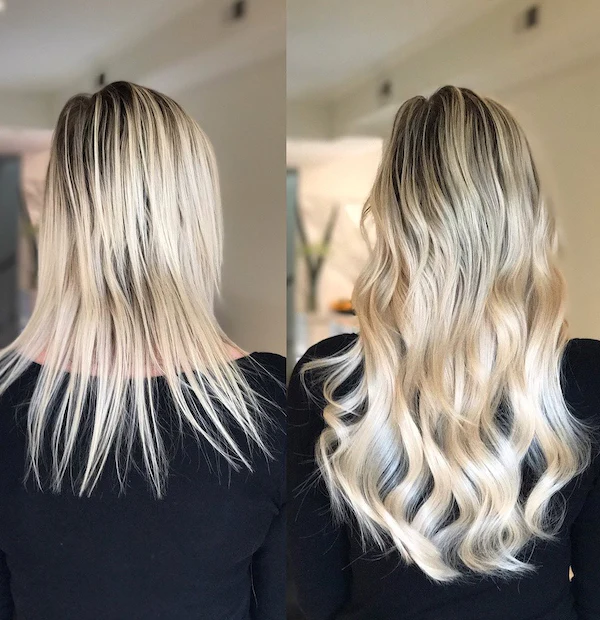
Why do hair extensions hurt?
If you asked “Why do hair extensions hurt?” and want to seek a specific origin, possible reasons might be anything from those listed below to others:
1. The attachment technique
When hair extensions are positioned too near to the scalp, they can’t lie flush against the head and instead protrude. If you feel this is the case with your hair extensions, schedule an appointment with the person who installed them so they may be loosened. The pain should stop after the hair extensions have been straightened and are resting against the scalp.
2. The natural hair thickness
Your scalp may be having trouble adjusting to the added weight of hair extensions if you have fine hair and they are connected. To comfortably use hair extensions, you’ll need to take care of your natural hair and thicker sections of it.
3. The skin sensitivity
In rare cases, an allergy to the fitting substance might be to blame for your pain. Micro rings, microtubes, and nano rings all have a metal component to which some people may be somewhat sensitive. However, this is often just a problem if you have metal sensitivity.
How to stop hair extensions from hurting you?
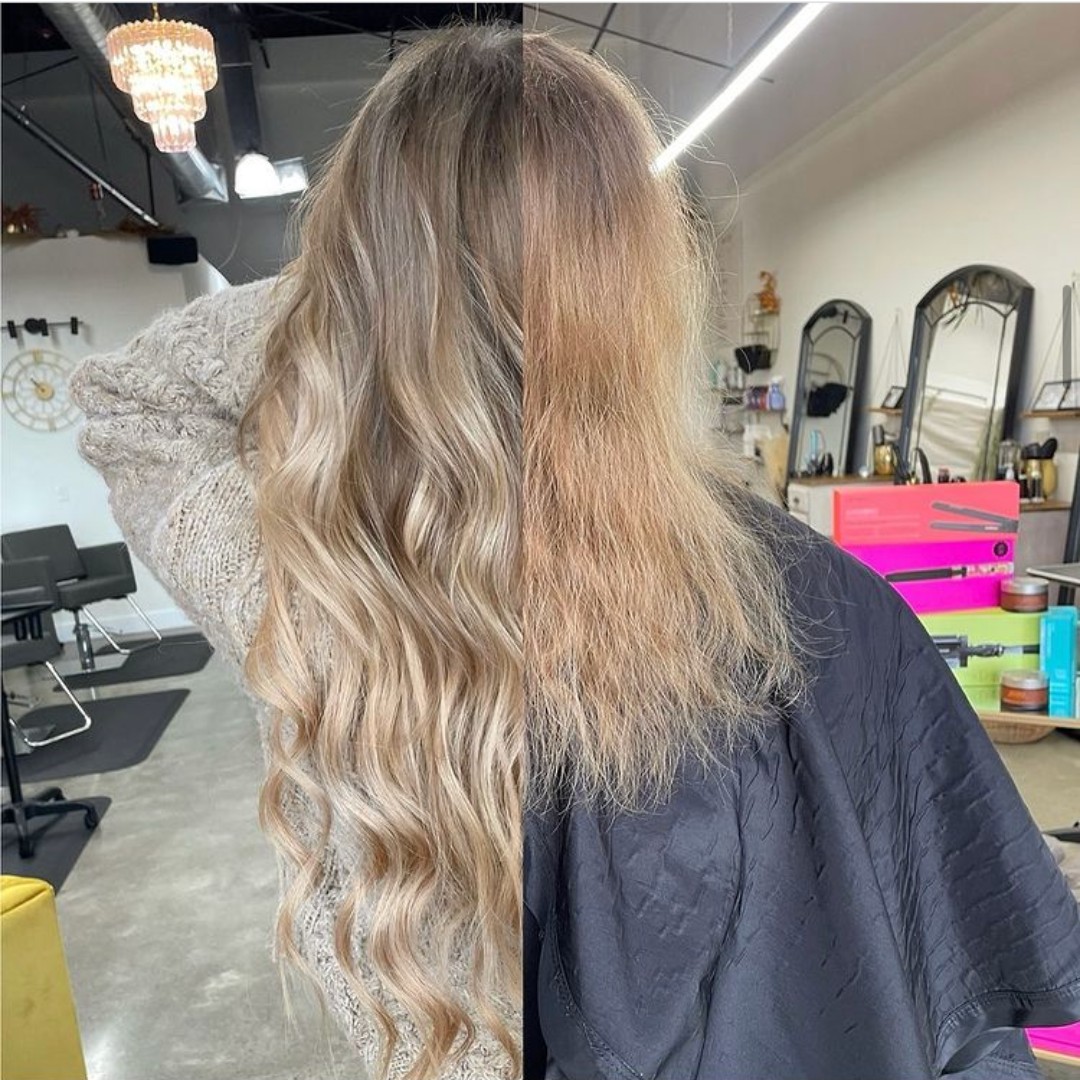
If the discomfort from your hair extensions has persisted for more than expected, you should visit your hairdresser again to have it taken care of professionally. Even if you’re only somewhat worried, it’s best to get the specialist’s opinion and make whatever little adjustments are needed.
The use of sew-ins as a preventative measure against the damaging effects of the environment on one’s natural hair is widespread. Unfortunately, many people are unaware that the hair and the scalp can be damaged by hair extensions if they are not properly installed (Further reading: How to install clip in hair extensions without damaging hair?)
On the other hand, if you feel the irritation is endurable, listed below are some steps you may do to ease the stress as well:
1. Wrap your head with a hot cloth
To put it simply, water is your buddy. The irritation will lessen significantly if you can let the steam go straight into your scalp. The hot steam will let the thread and extensions widen more easily, allowing you to ease the itch. Moreover, as the steam helps you massage your scalp deeper, it also helps the pain go faster.
2. Put some oil on it
In order to calm the irritated spots on your scalp, you can apply some oils that have anti-inflammatory capabilities such as peppermint oil, tea tree oil, or braid spray. These bottles can help soothe any discomfort and heal the wounds lightly.
However, it is recommended that you should limit your usage of these oils to no more than 3 times per week to prevent the side effects.
3. Snip a few of the strands
Cutting out some threads is another approach to lessen the discomfort of tightly sewn-in extensions. However, before doing this, try to think carefully, as it would be terrible if you accidentally chopped off all your hair.
If you decide to do it, here are some notices to remember:
- While cutting stitches, you should first tug or feel around the area to determine where the tension is before making the actual cut.
- Cut one stitch at a time, and then gently probe the area surrounding it to make sure it’s still attached to the sewn-in track before proceeding.
If you take these measures as afterthoughts, you’ll be less likely to experience any unpleasant outcomes you may face.
4. Get back to your hairdresser
Lastly, as mentioned, it is fine to revisit your hair salon to do some adjustments if needed. Even though many people say that it is normal, speaking up when getting your hair done is a wise and simple choice.
However, remember to be polite while making such a comeback. Make sure they understand the issue at hand by describing it, demonstrating it, and asking for their advice. If it is due to the technique, any competent stylist should be able to undo a sew-in. More often, it can be due to your skin rather than their faults.
Final thoughts
Jen Hair has answered the question “Do hair extensions hurt?” with absolute certainty. When you get these hair extensions, you should not have to worry about damaging your scalp in the first place.
However, it’s normal to have some soreness and stiffness immediately following the insertion of extensions, but this should subside quickly.
By applying some of our suggestions for relieving the discomfort caused by extensions, you should feel better quickly. If you have any other suggestions, please share them in the comments section so that everyone can know and get the tips as well.
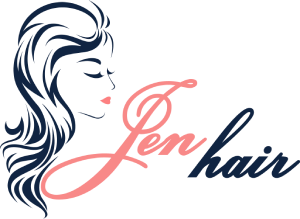
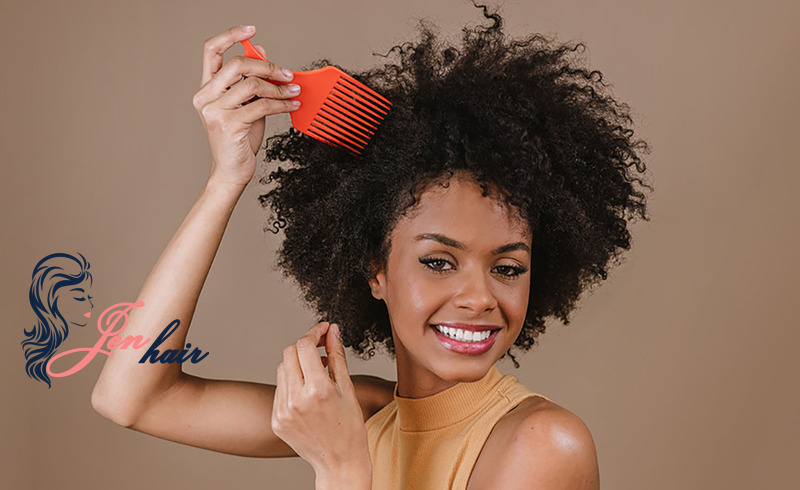 Guide Cornrows With Side Part The Best For Beginner
Guide Cornrows With Side Part The Best For Beginner Ultimate Guide: Headband with Hair Attached (Best Styles for 2025)
Ultimate Guide: Headband with Hair Attached (Best Styles for 2025)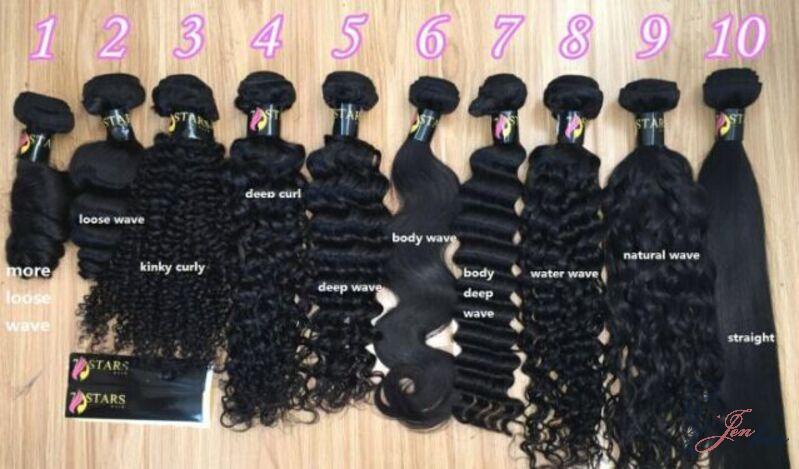 Top 7 Premium Human Hair Clip In Extensions For Black Hair
Top 7 Premium Human Hair Clip In Extensions For Black Hair
